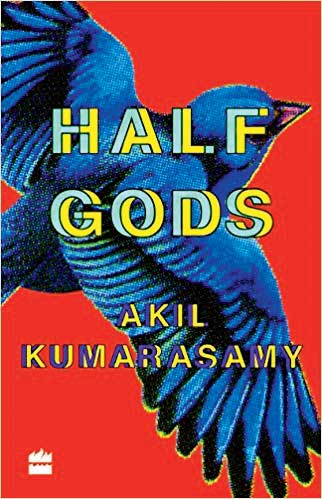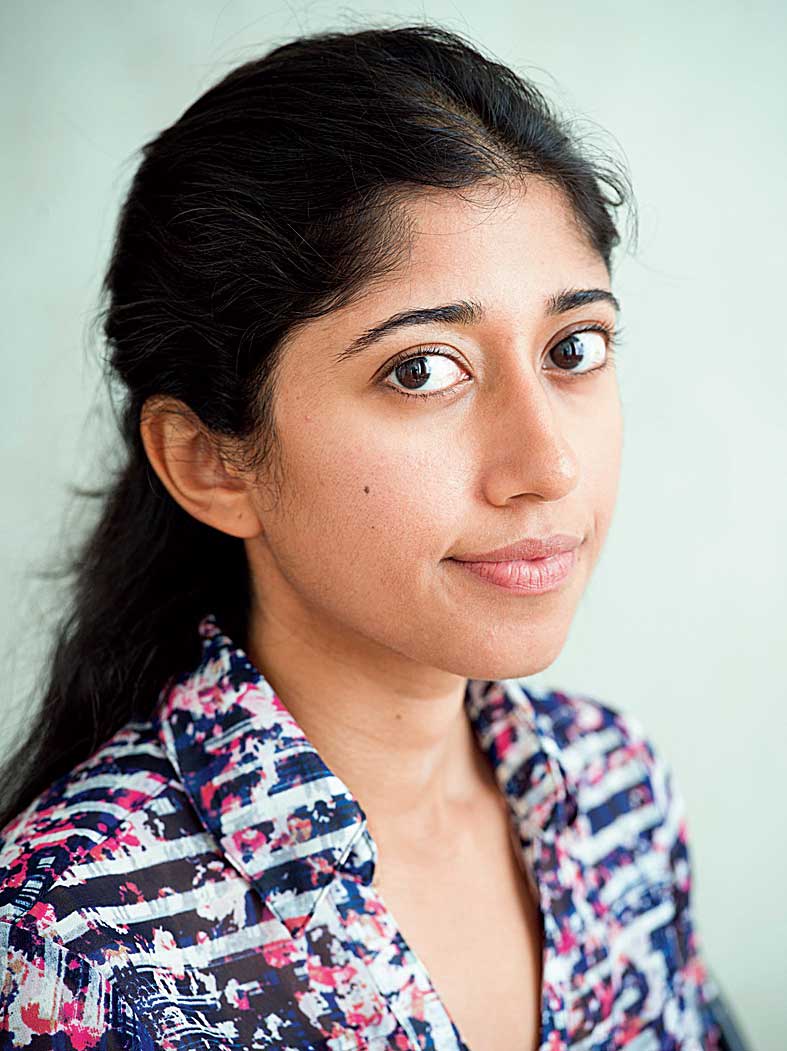The prose itself is a marvel because of Kumarasamy’s attention to ugliness,” The New York Times has observed about Akil Kumarasamy’s debut novel Half Gods that has created a stir in the literary world.
The 30-year-old New Jersey resident of Tamil-origin has written 10 seemingly disconnected stories that are strung together to narrate poignant incidents against the backdrop of the Sri Lankan civil war and the life of refugees.
At the centre of the Half Gods universe is a family where two sons are named after two half-brothers from the Mahabharata — Karna and Arjun. The narrative covers a diverse trajectory, from the tea plantations of Sri Lanka to a surgeon who’s moved to America and works as a butcher.
t2 caught up with the alumnus of the University of Michigan on email...

Half Gods; HarperCollins India; Rs 499 (Book Cover)
How did this book come into being?
I was thinking of the myth-making that goes with telling one’s childhood, which is a kind of creation story. I kept returning to the Mahabharata as a way to invoke the ancient in present times and to speak to how we inherit stories and have the agency to reconceive them.
Tell us a little about your growing up years and choosing to be a writer...
I grew up in a mostly South Asian town in New Jersey. I didn’t know any writers or artists, so it didn’t seem like a viable option. I studied economics because it seemed somewhat more practical and I liked the psychology behind why people made decisions. I eventually went to graduate school for fiction because it provided time and resources to focus on the craft.
Who are the most prominent literary influences in your life?
That’s difficult to say. I have definitely been strongly influenced by the work of Arundhati Roy, Louise Erdrich, and Edwidge Danticat.
You have previously said that you have never visited Sri Lanka. How was the experience of writing about an oddly unfamiliar yet extremely familiar place?
The story is non-linear and I jumped around during the process of writing it. I think it made me keenly aware of how I was approaching violence in relation to other literary texts. Often violence and war are told through a male gaze, so I wanted to be very conscientious in the aesthetic choices I was making in the work as a female author.
What kind of research went into creating Half Gods?
It was a combination of drawing from my own knowledge and at times researching for specific details. My grandfather worked on a rubber plantation in Malaysia, but a character in the book works on a tea plantation. I needed those particular details about tea picking, but I was writing and researching simultaneously. Sometimes you can use research as a way to procrastinate from writing.
Do you have a favourite story or character from your book?
That’s like asking who is your favourite child. I appreciate the stories for different reasons. For example, I structurally like how “Story of Happiness” embeds a story within a story and creates this dynamic conversation between two characters.
Did you have a kind of audience in mind while writing or during the publishing process?
I assume my audience is thoughtful and engaged. That way I never have to be overly explanatory. I have a lot of trust in readers.
You have won fellowships for fiction writing. How has that helped/shaped your learning process?
It has made me more expansive in the way I think about the writing process. Also, working with artists from other mediums has been enriching and helpful in rethinking how I approach the craft of writing.
What is your writing process like?
I have a more fluid process now, but it has changed and I bet it will continue to change. I don’t necessarily see the writing process as just sitting at the desk because being part of the world feeds your work. But writing does involve quite a bit of diligence and grit. Sometimes you need to go to your desk and try to write. Even if nothing comes, that’s part of the process. Nowadays, I have been writing in the mornings and that way I can ensure I get some writing done for the day and then can continue being a human in the world.
What are you currently reading?
I’m reading Octavia’s Brood: Science Fiction Stories from Social Justice Movements (edited by Walidah Imarisha and Adrienne Maree Brown) and Ursula K. Le Guin’s The Left Hand of Darkness.
What can we expect from your table next?
I am finishing up a novel. I’m really excited about the imaginative and spiritual scope of it.











